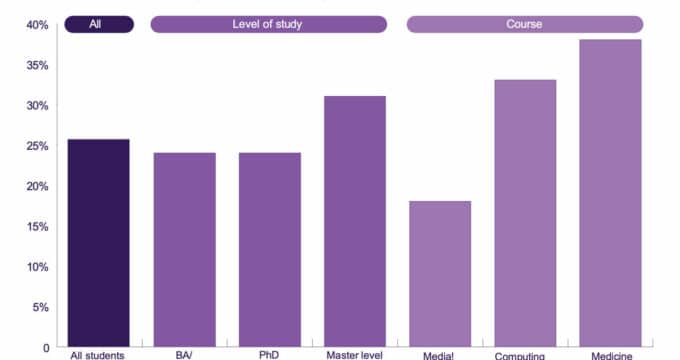Getting to know your market: best practices in market research
Considering that the international education market represents more than US$45 billion dollars, is currently estimated at roughly 2.7 million students, and is expected to grow to more than 8 million students by 2025, international student recruitment is becoming a bigger and bigger priority at institutions all over the world. But there are challenges: the competition for students is fierce, and the dynamics—and potential—of world and regional markets change from year to year.

- Compiling information from your institution's records and secondary sources
- Gathering reports from recruitment agents or other partners in the field
- Networking with alumni who have returned to their countries and want to continue supporting your institution
- Participating in consortiums: exchange and research collaborations that share the cost of research among several groups
The international students who are already enrolled at your institution represent another very important, and sometimes overlooked, source of market insight for all international recruitment professionals. Your students—their observations and insights of their home countries, their anecdotal experiences—are an invaluable source of information and perspective on international markets. Make them part of your ongoing research programme through student questionnaires, discussion groups, or even informal conversations that will help you to assess their preferences and experiences of study abroad. However you choose to gather research on your market, it is important to frame a set of questions to consider when evaluating a market's suitability for your recruitment efforts:
- What are the demographic trends in the country? For example, is there a bubble of 18-year-olds that might represent demand for undergraduate programmes? Or an aging population that could be interested in adult/further education or language programmes?
- What is the business climate like? Is there a spike of investment in certain sectors, like health, technology, or tourism? If so, there will likely be a corresponding need for training in these areas.
- Is the political and economic climate stable? Is there an effective process for student immigration, and can students get study visas in a reasonable period of time? Is it difficult to move funds in and out of the country?
- Is there an existing openness to international education, or to international impulses in general? The more a country is open to the world, the more its population will seek knowledge and experience outside of its borders.
- What is the domestic education capacity of the country? Is there unmet local demand for certain types or levels of education?
- That asked, is the existing educational system complementary to your institution's offerings? Your institution's degrees, for example, will hopefully be recognised when the international student returns to his or her home country.
- Are there other indicators that the country market is promising? Evidence of this might be in your country's national agency having prioritised the market, or generous study abroad grants being provided, or a network of agents working in the country, evidence of student mobility, etc.
ICEF recently interviewed Eugene Kumeyko, director of Hobsons Research Division, who offers the following tips for institutions planning market research. ICEF Bulletin: What are the benefits of a sound market research programme? Eugene Kumeyko: On the one hand, research allows institutions to evaluate the effectiveness of their marketing strategy in each individual market by assessing prospective students' perceptions of the brand and academic offering. On the other hand, sound market research is a must for informing a strategy for new markets or further expansion in existing markets. In simple words, research answers two questions: Is what we are currently doing in China (India, Nigeria, Russia…) working to our advantage? Do we need to change our marketing activity in order to achieve a more competitive position in this particular market? ICEF Bulletin: What are some best practices in market research that all institutions could apply? Eugene Kumeyko: I would suggest three things:
- Stay on top of market trends and needs, and monitor new opportunities by making active and ongoing research part of your student recruitment strategy.
- Before undertaking a research programme, know what you want to accomplish, and engage qualified research professionals to help with research design and analysing results.
- Engage your front-line staff—particularly the practitioners or international education specialists within your institution—in the market research process. Solicit input from these staff to your research design. Similarly, ensure that they have access to your research findings afterward and use these to further refine their strategies and practices.
















